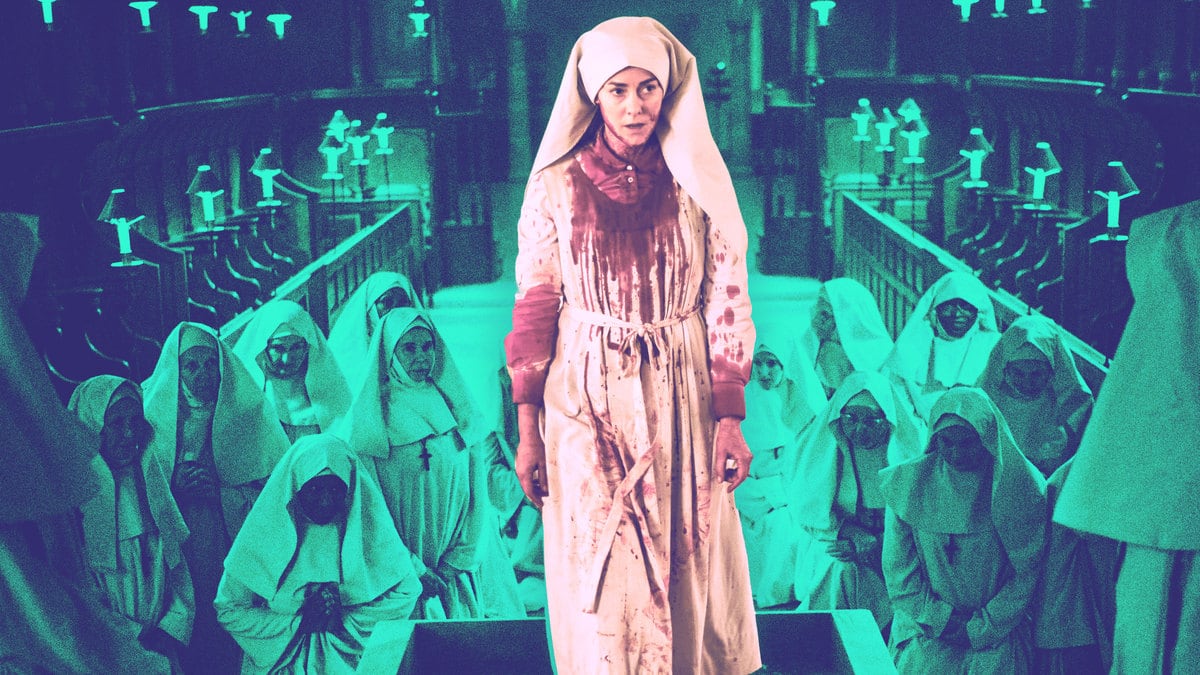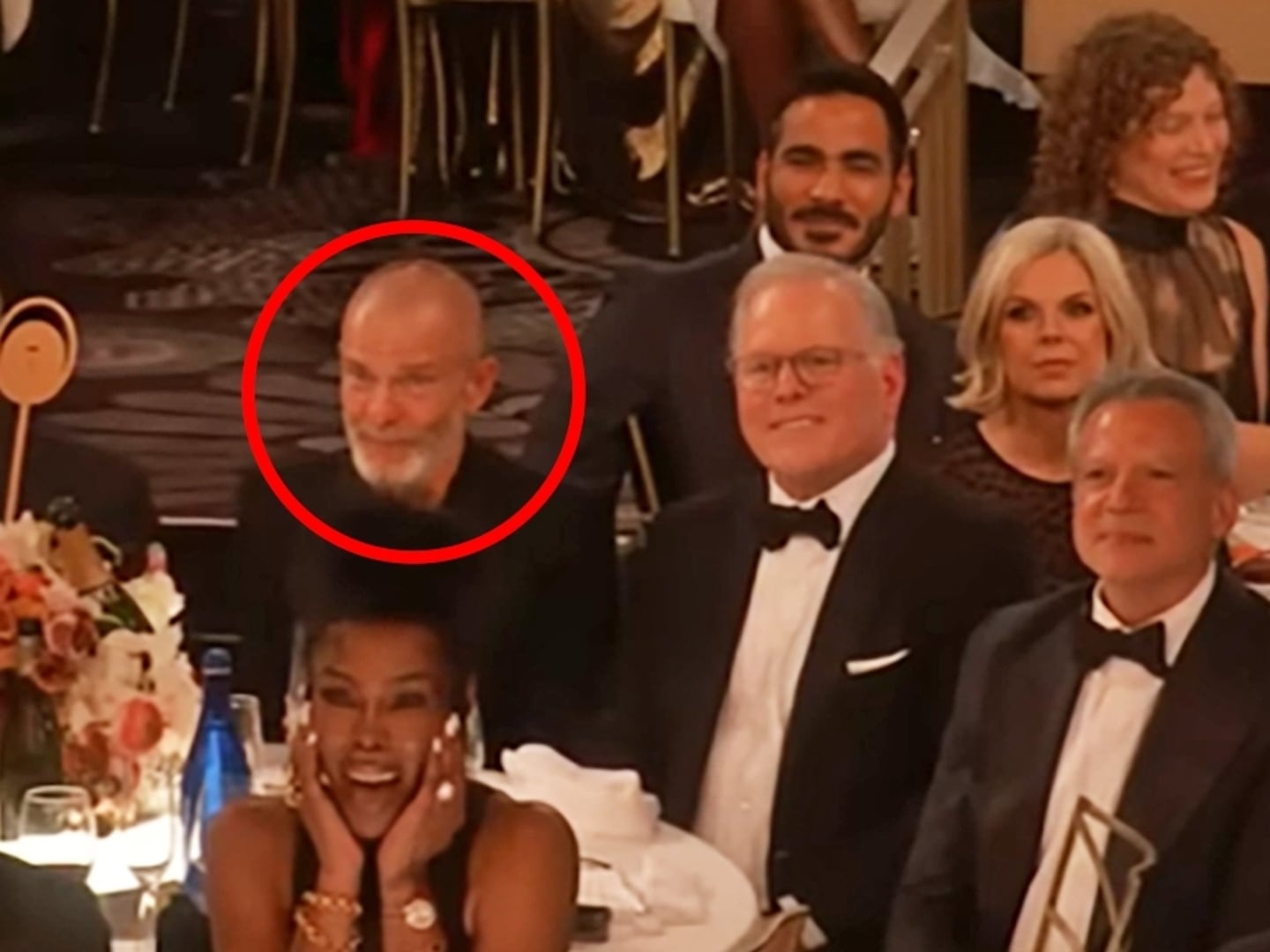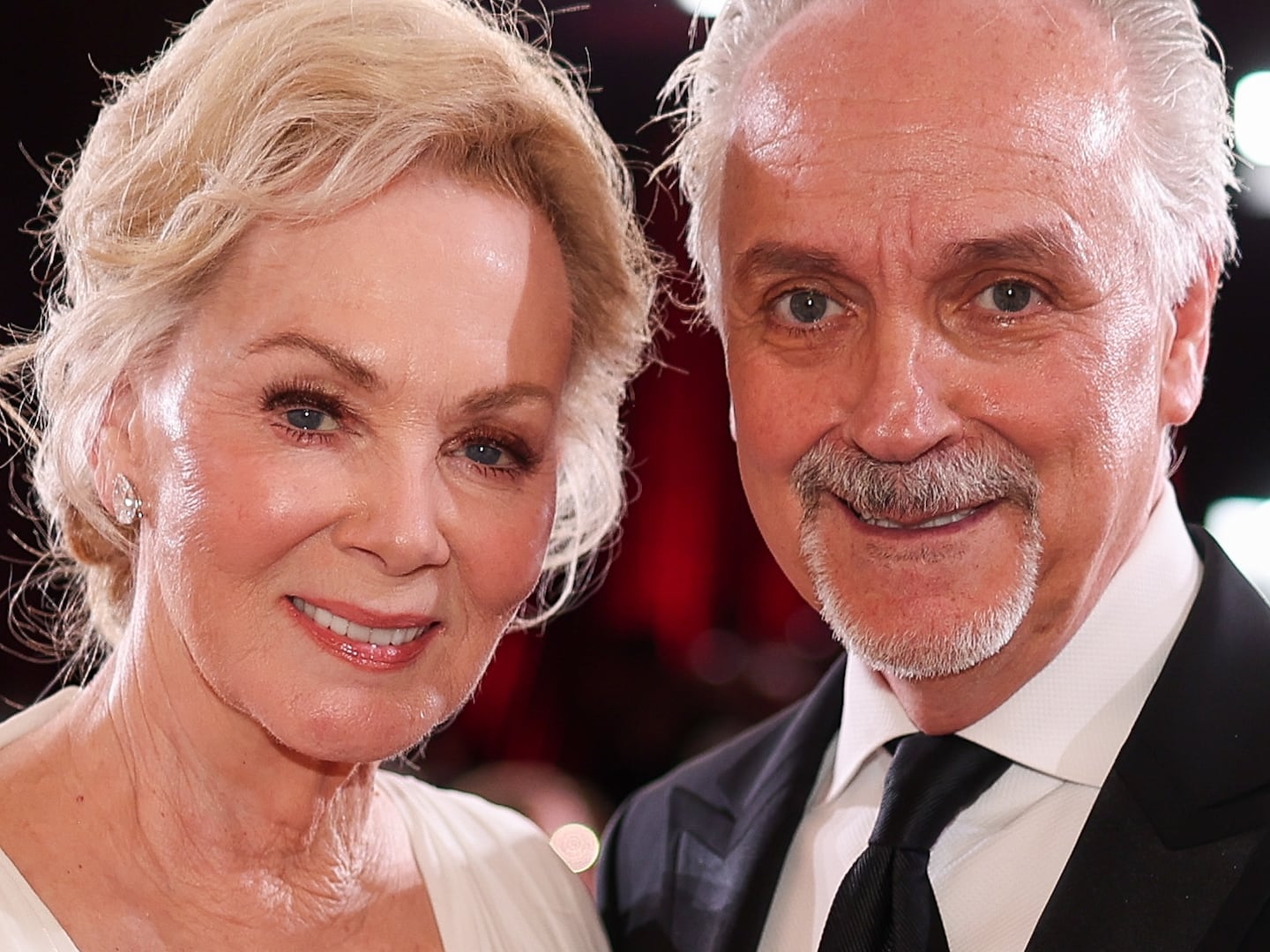As both ardent fundamentalists and horror aficionados know, you can’t have God without the Devil. Nonetheless, Consecration contends that it’s sometimes difficult to distinguish between the two, especially when both the devout and the blasphemous behave in a dubious—if not outright alarming—manner. It’s enough to make one swear off religion altogether, especially when it’s practiced at the most perilous cliffside church since Black Narcissus.
The latest from Black Death director Christopher Smith, Consecration (premiering Feb. 10 in theaters) follows in the footsteps of so many prior demonic thrillers that it’s a wonder it has any tricks up its sleeve. Alas, the meager surprises it does contain aren’t particularly effective, considering that early clues suggest only one possible twist and the proceedings do little to mask it.
More troublesome, though, is the sheer lack of terror found throughout this horror effort, whose main creative ideas are to drench things in ominous gloom and/or sanctified white, flip-flop between the past and present, and stage a few bloody murders that boast little imagination and even less punch. What’s left, then, is merely an age-old lesson about Satan’s status as the great deceiver.
Grace (Jena Malone) is an ophthalmologist who doesn’t believe in God and, therefore, in miracles. Luckily for her latest patient, she’s knowledgeable about scientific remedies for grave medical conditions. There’s no saving Grace’s brother Michael (Steffan Cennydd), however, who Grace learns has died in what appears to be a murder-suicide at the remote Scottish convent on the Isle of Skye where he resides as a priest.
Grace can’t believe that her sibling committed such a heinous crime, much less against a fellow priest, and thus travels to this remote area to investigate. Unfortunately for her, Detective Chief Inspector Harris (Thoren Ferguson) confirms that the story she’s heard is true, and he takes her to visit the cloistered abbey run by Mother Superior (Janet Suzman), an aged nun who’s about as cheery and welcoming as the island’s crashing waves.
Mother Superior states that Michael “fell into darkness,” by which she means was possessed by a demon, and it was this evil entity that drove Michael to slay the visiting priest. Grace isn’t having any of this but, because the land upon which the convent was built is owned by the Vatican, Mother Superior’s word is law.
More problematic for Grace, when she views Michael’s corpse in the morgue, she’s visited by his ghost, who tells her that it’s not safe here. In doing so, he instigates the first of Grace’s many flashbacks to their youth, during which they were badly mistreated by their father (Ian Pirie). As is explained shortly thereafter, Grace was adopted and her upbringing was a nightmare marked by her father keeping his kids in cages and slaying his wife in a fit of fiendish rage. Given that dear old dad was also a zealot, it’s no wonder that Grace has sworn off Christianity.
It turns out that Michael did himself in at the creepy ruins of a former 12th-century church where crusaders known as the Knights of the Morning Star used to host religious artifacts that they picked up along their journeys. According to Father Romero (Danny Huston), a Vatican priest on the scene to help consecrate the convent, this ancient, gone-to-seed place of worship was “a beacon of light in dark times,” and its stones were even used to construct the nuns’ new chapel. Apparently, the knights used to take one step backward from the altar for each confessed sin, and if those were too many, they fell through a doorway (which still stands) to their deaths on the rocks below—a self-destructive practice that Michael seems to have followed.
Grace believes very little of what she’s told, but Consecration has her suffer so many disorienting visions—of both her past and of events that have yet to take place—that it’s almost impossible to view her as a reliable protagonist.
The fact that some of these hallucinations concern a little masked girl being scooped up by crusaders (in the process interrupting her pagan forest ritual) only solidifies one’s impression that Grace is about as trustworthy as a three-dollar bill, and probably a good deal more dangerous. Malone basically acts flummoxed and freaked-out for the entirety of the film, doing little to dispel one’s impression of her character as a deranged-by-trauma mess at best, and an unholy menace at worst.

As written by Smith and Laurie Cook, Consecration eschews traditional suspenseful sequences, save for one instance of Grace entering a heretofore locked-and-guarded door and descending into darkness. The director concocts a few choice sights, including a parade of white-clad people of the cloth falling backwards through the air to their demise, and a late sequence in which the true nature of the malevolent spirit that plagued Michael is revealed. Mostly, however, things are suitably drab and frigid, and the action proceeds at a bumpy pace, with some of its plot points landing clunkily and its bombshells arriving without requisite set-up.
If there’s a reason to make it to the conclusion of Consecration, it’s Suzman, who dons a pristine colorless habit and embodies Mother Superior as an imperious old hag with a trunk-load of secrets, none of them comforting. Suzman is such an unsettling presence that she alone gives the material a modest chill, as well as helps to offset the blandness of Huston’s turn as a priest whose friendliness toward Grace is such an obvious charade that he proves more annoying than unnerving.

Then again, there’s nothing much for either Suzman or Huston to do in this film, whose defining features are a book filled with Michael’s coded scrawl, a couple of instances of invisible forces compelling individuals to injure themselves, and shadowy figures lurking behind characters in under-illuminated bedrooms and hallways.
Worse than Consecration’s lack of depth, ultimately, is its lethargy. In light of its nominal stakes, one would expect far more fervor and frenzy from this ghost story by way of The Omen. Instead, it plods along in a muted monotone that results in scant scares—thereby committing the cardinal horror-cinema sin.
Keep obsessing! Sign up for the Daily Beast’s Obsessed newsletter and follow us on Facebook, Twitter, Instagram and TikTok.






